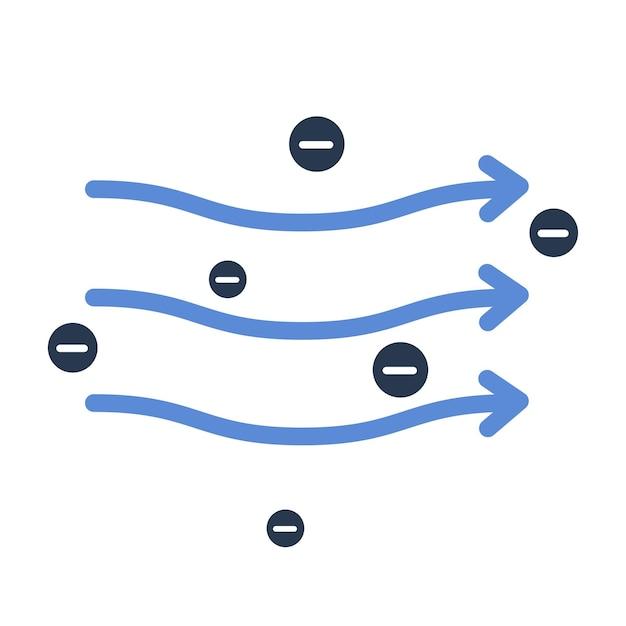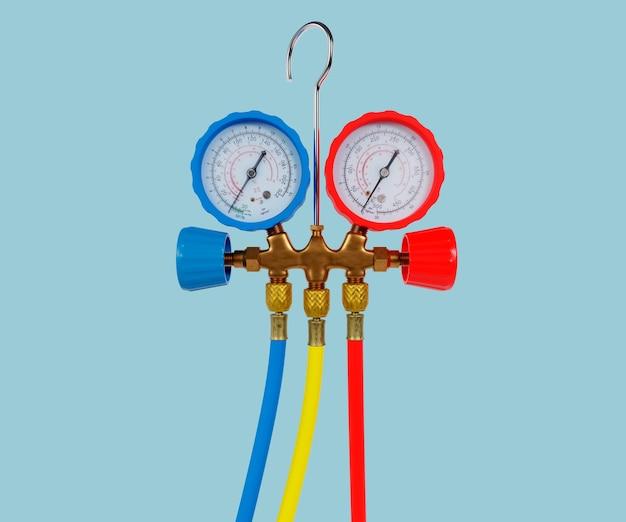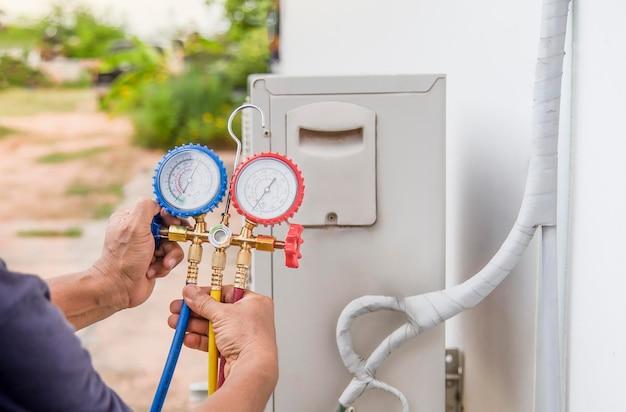If you’ve ever had an issue with your heating, ventilation, and air conditioning (HVAC) system, you’re probably familiar with the term “trip charge.” But what exactly is it, and why do HVAC companies charge it?
In a nutshell, an HVAC trip charge is a fee that HVAC technicians charge for the privilege of coming out to your home to diagnose and repair your system. This fee is usually in addition to other charges that may apply, such as a diagnostic fee or a minimum service call charge.
At first glance, the idea of paying a trip charge might seem like a rip-off. After all, shouldn’t the cost of traveling to your home be factored into the overall cost of the repair?
However, the reality of the situation is that HVAC companies have to cover a variety of costs when they send a technician out to your home. Some of these costs include fuel, vehicle maintenance, insurance, and more. By charging a trip fee, HVAC companies can offset some of these expenses and ensure that they’re able to provide the best possible service to their customers.
In this comprehensive guide, we’ll dive deep into the world of HVAC trip charges. We’ll discuss what they are, how much you can expect to pay for them, and what to look out for when you’re dealing with HVAC companies. So whether you’re experiencing issues with your HVAC system or you’re simply curious about how the industry works, this guide has everything you need to know.
The Lowdown on HVAC Trip Charges
If you’ve ever hired a technician to come out and service your heating, ventilation, and air conditioning (HVAC) system, you might have noticed a “trip charge” on your bill. It’s a common fee that many HVAC companies charge, and it can be confusing if you’re not familiar with what it entails. In this section, we’ll go over everything you need to know about HVAC trip charges.
What is an HVAC Trip Charge
An HVAC trip charge is a fee that HVAC companies charge for sending out a technician to your home or business. It’s intended to cover the cost of the technician’s time, transportation, and fuel to get to your location. This fee is in addition to the cost of any repairs or services that the technician performs.
How Much Does an HVAC Trip Charge Cost
The cost of an HVAC trip charge can vary depending on the company and your location. Some HVAC companies charge a flat rate for trip charges, while others charge based on the distance the technician has to travel. On average, you can expect to pay anywhere from $50 to $150 for an HVAC trip charge.
Why Do HVAC Companies Charge Trip Fees
There are many reasons why HVAC companies charge trip fees. Here are a few:
- It helps offset the cost of maintaining a fleet of service vehicles.
- It covers the cost of fuel and other transportation expenses.
- It compensates technicians for their time and expertise.
Can You Avoid HVAC Trip Charges
In some cases, it may be possible to avoid HVAC trip charges. For example, some companies offer free trip charges if you sign up for an annual maintenance plan. Others may waive the fee if you agree to have the recommended repairs or services performed.
While an HVAC trip charge can feel like an unpleasant surprise, it’s a common fee in the industry. Understanding what it covers and why companies charge it can help you be better prepared for HVAC service appointments. Additionally, it’s always a good idea to ask about trip charges upfront so that you’re not caught off guard when you receive your bill.
HVAC Trip Charge: What It Is and What You Need to Know
If you’re in the HVAC business, you’ve probably heard about the HVAC trip charge. But what is it, exactly? In a nutshell, it’s a fee that HVAC technicians charge for traveling to your home or office to diagnose a problem or perform repairs. Let’s delve a little deeper into what you need to know about HVAC trip charges.
How Much Does an HVAC Trip Charge Typically Cost
The cost of an HVAC trip charge can vary depending on a few factors, such as your location and the company you hire. Generally, you can expect to pay anywhere from $50 to $150 for an HVAC service call. However, keep in mind that this fee is usually waived if you decide to hire the technician or company to perform the needed repairs.
Why Do HVAC Technicians Charge a Trip Charge
HVAC technicians charge a trip charge to offset the cost of travel time and expenses. Think about it: they have to spend time and money traveling to and from your location, and they may need to bring along tools and equipment to perform their work. The trip charge helps cover these expenses and ensures that the technician is compensated fairly for their time.
Should You Try to Avoid Paying an HVAC Trip Charge
While it might be tempting to try to avoid paying an HVAC trip charge, it’s usually not worth the effort. Avoiding the fee could mean waiting longer for repairs, as most companies won’t dispatch a technician until they receive payment for the service call. Additionally, many companies offer discounts or promotions that can help reduce the cost of the trip charge or even eliminate it altogether.
Tips for Minimizing Your HVAC Trip Charge
If you’re looking to minimize your HVAC trip charge, there are a few things you can do. First, try to schedule your service call during normal business hours, as many companies charge extra for after-hours or emergency service. Additionally, make sure your HVAC system is easily accessible and that there is a clear path for the technician to reach it. This can help reduce the amount of time it takes for the technician to diagnose and repair the issue.
In conclusion, understanding the ins and outs of HVAC trip charges can help you make informed decisions about your HVAC needs. By keeping these tips in mind, you can help ensure that you receive prompt, professional service without breaking the bank.
Minimum Trip Charge: What It Means for Your HVAC System
When it comes to your heating, ventilation, and air conditioning (HVAC) system, there’s often a lot of industry jargon to navigate. One term that you may come across is the minimum trip charge. So, what exactly does this term mean, and how does it affect your HVAC system? Let’s dive in.
Understanding the Minimum Trip Charge
The minimum trip charge is a fee charged by HVAC service providers to cover the cost of sending a technician to your home or business. Essentially, it’s the minimum amount you’ll be required to pay if you request service, even if the technician is only on-site for a few minutes.
This fee is important because it allows HVAC companies to cover their costs, even for smaller jobs. Without a minimum trip charge, companies may struggle to stay in business, as they wouldn’t be able to cover expenses such as fuel costs, equipment maintenance, and employee wages for short visits.
Why You May Encounter a Minimum Trip Charge
You may be wondering why you’d encounter a minimum trip charge in the first place. After all, if your HVAC system only needs a minor repair or tune-up, shouldn’t the fee be smaller?
While it’s true that some HVAC companies offer different pricing structures for different types of repairs, it’s important to remember that these companies still have expenses to cover, regardless of the job’s size. With a minimum trip charge in place, companies can ensure their costs are met, regardless of the scope of the work required.
How to Make the Most of the Minimum Trip Charge
While it may seem frustrating to have to pay a minimum fee for a short visit, there are ways to make the most out of the service call. Here are a few tips:
-
Schedule multiple repairs or tune-ups at once, so you can make the most of the technician’s time on-site.
-
Ask the technician to take a look at other components of your HVAC system while they’re on-site to catch any potential problems early.
-
Use the opportunity to ask the technician any questions you may have about your system, such as how to maintain it or what signs to look out for.
In summary, the minimum trip charge is a fee charged by HVAC companies to cover the cost of sending a technician to your home or business. While it may seem frustrating at first, it’s an important aspect of the industry that allows HVAC companies to stay in business while providing important repair and maintenance services. By following the tips above, you can make the most out of your next service call.
HVAC Diagnostic Fee
When your HVAC system breaks down, the cost of repair is usually more than just the parts and labor. The HVAC diagnostic fee is the charge that HVAC technicians apply to diagnose the issue. It’s essentially the cost of their labor to determine the problem.
What is an HVAC diagnostic fee
An HVAC diagnostic fee is a charge that HVAC technicians apply for diagnosing an issue with your HVAC system. It takes into consideration the cost of the technician’s travel time, specialized training, and expertise to diagnose the issue. It’s essentially the cost of their labor to determine the problem.
Why is there an HVAC diagnostic fee
The HVAC diagnostic fee covers the cost of the HVAC technician’s time to thoroughly diagnose the problem with your HVAC system. HVAC technicians are highly trained and skilled professionals who have spent years learning how to diagnose and repair complex HVAC systems. They have invested time, effort, and resources to develop these skills, and the diagnostic fee helps cover these expenses.
How much is an HVAC diagnostic fee
The HVAC diagnostic fee varies depending on the complexity of the problem and the HVAC company you choose. Typically, the cost can range from $75 to $200 or even more. However, it’s important to note that some HVAC companies may waive diagnostic fees if you hire them to complete the necessary repairs.
Is the HVAC diagnostic fee worth it
Yes, the HVAC diagnostic fee is definitely worth it. It’s a small price to pay for the peace of mind that comes with knowing the problem with your HVAC system has been properly diagnosed. Without a correct diagnosis, you could end up spending more money on unnecessary repairs, which could lead to further damage to your HVAC system.
In conclusion, the HVAC diagnostic fee is a common and necessary cost associated with HVAC repairs. It’s the cost of the HVAC technician’s time to diagnose the problem with your HVAC system accurately. Although it can be an added expense, it is well worth the cost to ensure your HVAC system is repaired accurately and efficiently, saving you time, money, and stress in the long run.
HVAC Charges Meaning
If you’re searching for HVAC services, you must have come across different costs and terms related to them. One of those is the infamous “trip charge.”
What is a trip charge
Simply put, a trip charge, also known as a service call fee, is the amount you pay for an HVAC technician to visit your home or business location. This cost covers the expense of the technician’s time and travel to arrive at the service location.
Why do HVAC companies charge for a trip
HVAC systems are complex, and it takes a knowledgeable technician to repair them when something goes wrong. The charge for the service visit is to provide an incentive for the technician to come to your location and assess the situation accurately.
Are trip charges negotiable
In some cases, you can negotiate a lower trip charge if you’re an existing customer of the HVAC company or if you’re referring someone else to the company. Also, some companies may waive the trip charge if you hire them to make repairs or perform routine maintenance work.
How much should HVAC trip charges cost
There is no set price for HVAC trip charges. The cost can vary from one company to another depending on factors like location, type of HVAC system, and scope of the work required. Some HVAC contractors may charge a flat rate, whereas others may have varying rates depending on the time of day or week.
In summary, a trip charge is a fee charged by HVAC companies for the technician to travel to your location and diagnose your HVAC system’s problems. The cost of the trip charge is often negotiable, and it varies depending on the company and other external factors. Understanding HVAC charges can save you money and prevent misunderstandings between you and the HVAC company.
Understanding Trip Charge for Service Call
If you’re someone who has used HVAC services before, then you may have come across the term “trip charge” when you asked for a technician to come for maintenance at your home or office. Trip charge, also known as a service call fee, is a charge HVAC technicians apply to their service cost when they come to your location. In this section, we’ll take a look at what trip charge entails and how much it costs.
What is a Trip Charge and Why is it Important
A trip charge, as aforementioned, is a fee that HVAC companies charge to cover the cost of the technician’s travel to your location. Essentially, it’s the cost of dispatching a technician to your home or office to diagnose and fix an HVAC problem. While trip charges may seem like an unnecessary expense, they’re critical to understanding the total cost of HVAC services.
What is the Average Cost of Trip Charge
The cost of a trip charge varies based on the company and location, with some companies charging more than others. On average, trip charges range from $75 to $150. Factors that could affect the charge include distance to your location, the time of day, and the urgency of the situation.
How To Avoid Trip Charge Fees
While it’s not always possible to avoid trip charge fees, you can try to minimize them by scheduling multiple services during the same visit. If you’re planning to install a new HVAC system or need regular maintenance, booking an annual maintenance plan could help you keep your system running smoothly and reduce the number of emergencies.
Hopefully, by now, you understand what a trip charge is and why it’s essential in the HVAC industry. It’s important to remember that the fee is not a hidden or unnecessary expense, but an essential component of the service charge. At the end of the day, trip charges help keep HVAC technicians in business, and you get the best HVAC solutions at the comfort of your own home or office.
Paying HVAC Trip Charges Using a Credit Card
Are you worried about paying for your HVAC trip charge because you don’t have cash on hand? Don’t worry; many HVAC contractors now accept credit cards as a form of payment. Here’s what you need to know about paying for your HVAC trip charges using a credit card.
Why HVAC Contractors Accept Credit Cards
HVAC contractors recognize that their customers might not always have cash on hand to pay for their services upfront. By accepting credit cards, they provide their customers with a flexible payment solution. Additionally, accepting credit cards saves time and hassle for both the HVAC contractor and the customer, eliminating the need to make additional trips to the bank or ATM and reducing the risk of bounced checks.
Benefits of Paying for HVAC Trip Charges on Credit Card
Using a credit card to pay for your HVAC trip charge has several benefits. Firstly, paying with a credit card means you don’t have to worry about having cash on hand. Secondly, using a credit card provides you with some protections for your purchase, such as chargebacks and fraud protection. Finally, if you are enrolled in a rewards program, you can earn points or cashback on your purchase, providing additional value.
Possible Fees Associated with Paying with Credit Card
While paying for your HVAC trip charge with a credit card might seem like a convenient option, it’s essential to be aware of any fees associated with paying with a credit card. Depending on the contractor, there might be a small processing fee charged to cover the cost of credit card processing. Additionally, if you don’t pay off your credit card balance immediately, you may incur interest charges.
Paying for your HVAC trip charge using a credit card provides you with added flexibility and convenience. However, it’s essential to be aware of any fees associated with paying with a credit card and to ensure that you can pay off your balance immediately to avoid accruing any interest charges. Talk to your HVAC contractor to inquire if they accept credit cards as a form of payment and if any additional fees will be charged.
Symptoms of an Overcharged HVAC System
If you’ve noticed that your HVAC system is not working optimally, you may be wondering what’s going on. One possibility is that your system is overcharged with refrigerant. Here are some common symptoms of an overcharged HVAC system:
Frozen Evaporator Coil
If your evaporator coil is covered in ice, this is a clear symptom that your HVAC system is having issues, and it could be overcharged with refrigerant. An overcharged system can cause the evaporator coil to freeze. When this happens, the airflow inside your home is restricted, and it can lead to less cooling and significantly decreased performance.
Reduced Cooling Capacity
When the HVAC system is overcharged with refrigerant, it can cause decreased cooling capacity. This means that your home is not getting the cooling it needs to keep you comfortable, and the system is working extra hard. You may notice that the air coming out of your vents is not as cool as it used to be.
Increased Energy Bills
An overcharged HVAC system can cause your energy bills to increase. The system needs to work harder to cool your home, which means it uses more energy. By addressing the overcharged system, you can reduce your energy bills and save money.
Short Cycling
Short cycling occurs when your HVAC system runs for a brief period and then shuts down. If you experience short cycling, it could be a result of an overcharged system. The system will shut down to prevent damage and then restart shortly afterward.
Unusual Noises
When your HVAC system is overcharged, it may make unusual noises. These noises can range from a hissing sound to more severe rattling, knocking, or squealing sounds.
What to Do Next
If you suspect that your HVAC system might be overcharged, it’s best to contact a professional HVAC contractor. They can inspect your system and provide the necessary repairs to get it back to optimal operation. By taking care of your HVAC system, you can ensure that it runs smoothly, efficiently, and effectively.
What is included in a service call
If you’re new to the world of home heating and cooling systems, you may wonder what exactly is included in a service call. When you pick up the phone and call your HVAC technician to come out to your home, what can you expect?
Diagnostic Analysis
The first thing your technician will do when they arrive at your home is perform a diagnostic analysis. This involves inspecting your system, testing various components, and identifying any issues that may be impacting its performance.
System Cleaning
Once the diagnostic analysis is complete, your technician will perform a thorough cleaning of your heating and cooling system. This includes removing any built-up dirt, dust, and debris from the system, as well as cleaning filters, coils, and other vital components.
Repair and Maintenance
After the cleaning, your technician will make any necessary repairs to your system. Whether it’s fixing a malfunctioning component, replacing a part, or performing routine maintenance, your technician will ensure that your system is functioning as efficiently and effectively as possible.
Expert Advice
Finally, your technician will provide you with expert advice on how to keep your system running smoothly. This may include tips on how to care for your system, advice on which components to replace or upgrade, or recommendations for future routine maintenance and service.
In summary, when you call an HVAC technician for a service call, you can expect a comprehensive diagnostic analysis of your heating and cooling system, a thorough cleaning of all components, any necessary repairs or maintenance, and expert advice to keep your system running smoothly. With regular service calls, you can help ensure that your system operates at peak performance for years to come.
How much should I pay for a service call
If you’re experiencing problems with your HVAC unit, you may be considering calling for professional help. But before you do, you may be wondering, “How much does a service call cost?”
The answer is that it varies. The cost of a service call can depend on several factors, including the time of day, the day of the week, the location, the type of unit you have, and the extent of the repairs needed.
Factors that Affect the Cost of a Service Call
- Time of Day: If you require an emergency service during non-business hours, you may be charged an additional fee for the convenience of the service.
- Day of the Week: A service call requested during weekends or holidays may also incur additional charges.
- Location: If you live in a remote area, it may be challenging for the technicians to access your location without charging extra for travel expenses.
- The Type of Unit: Certain HVAC systems may require specialized training, equipment, and parts, which would result in higher costs.
- Extent of Repairs: The costs can range from relatively inexpensive to very expensive depending on the complexity and scope of the repairs needed.
What is the Average Cost of a Service Call
On average, you can expect to pay between $75-$200 for a routine service call. However, emergency service calls or after-hours calls can be pricier and amount to $250 or more. Keep in mind that these prices may vary depending on your location and the complexity of the service call.
Tips for Reducing the Cost of a Service Call
If you’re looking to save money on your next service call, consider doing the following:
- Ask for discounts: Some HVAC contractors offer discounts for veterans, senior citizens, and first-time customers.
- Schedule maintenance: Regular maintenance checkups can help prevent the need for emergency repairs and keep your system running efficiently.
- Choose a local provider: Going with a local HVAC contractor can help cut costs by reducing travel costs and potential delays.
- Compare prices: Shop around and get quotes from several companies before deciding on a service provider.
In summary, the cost of a service call for your HVAC unit can vary depending on several factors. To get the best value for your money, be sure to shop around, compare prices, and consider regular maintenance as a preventative measure to costly repairs.



